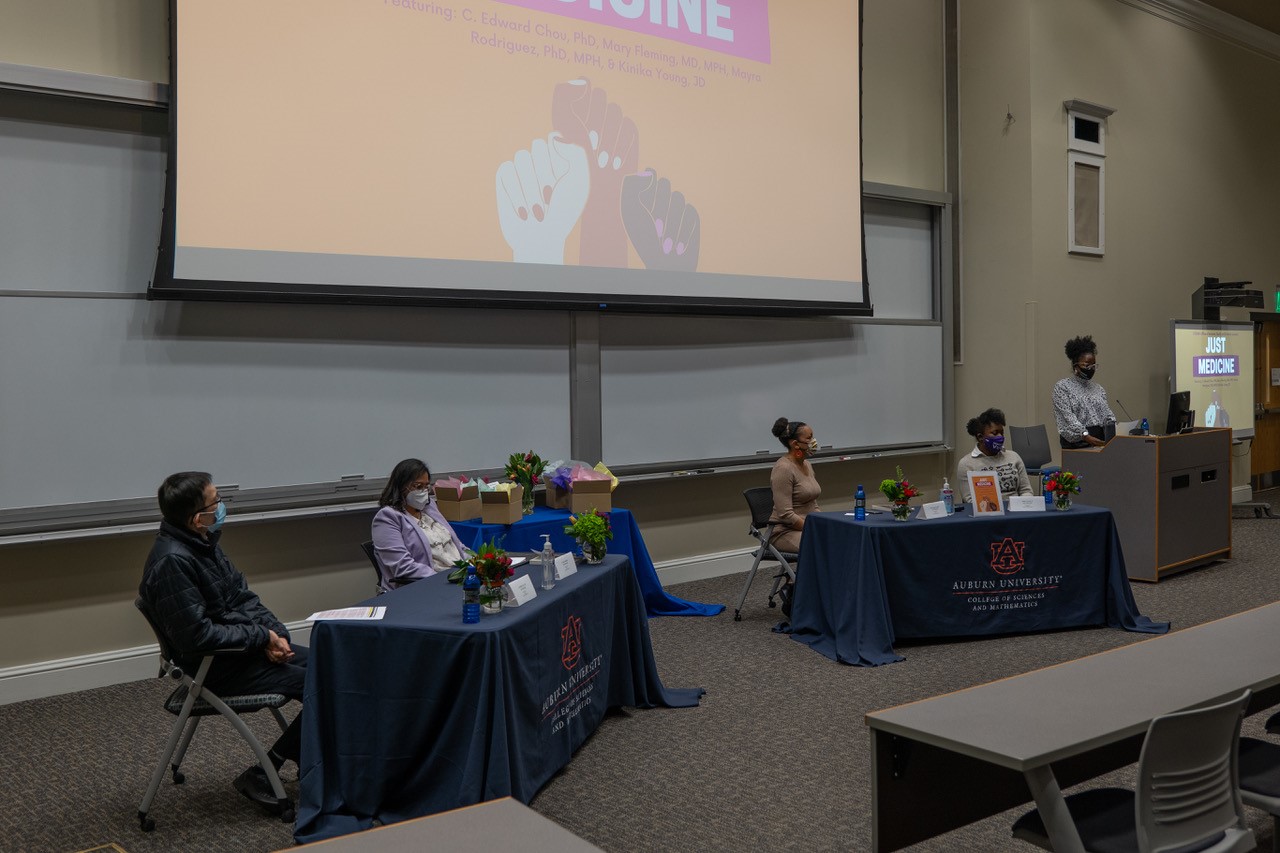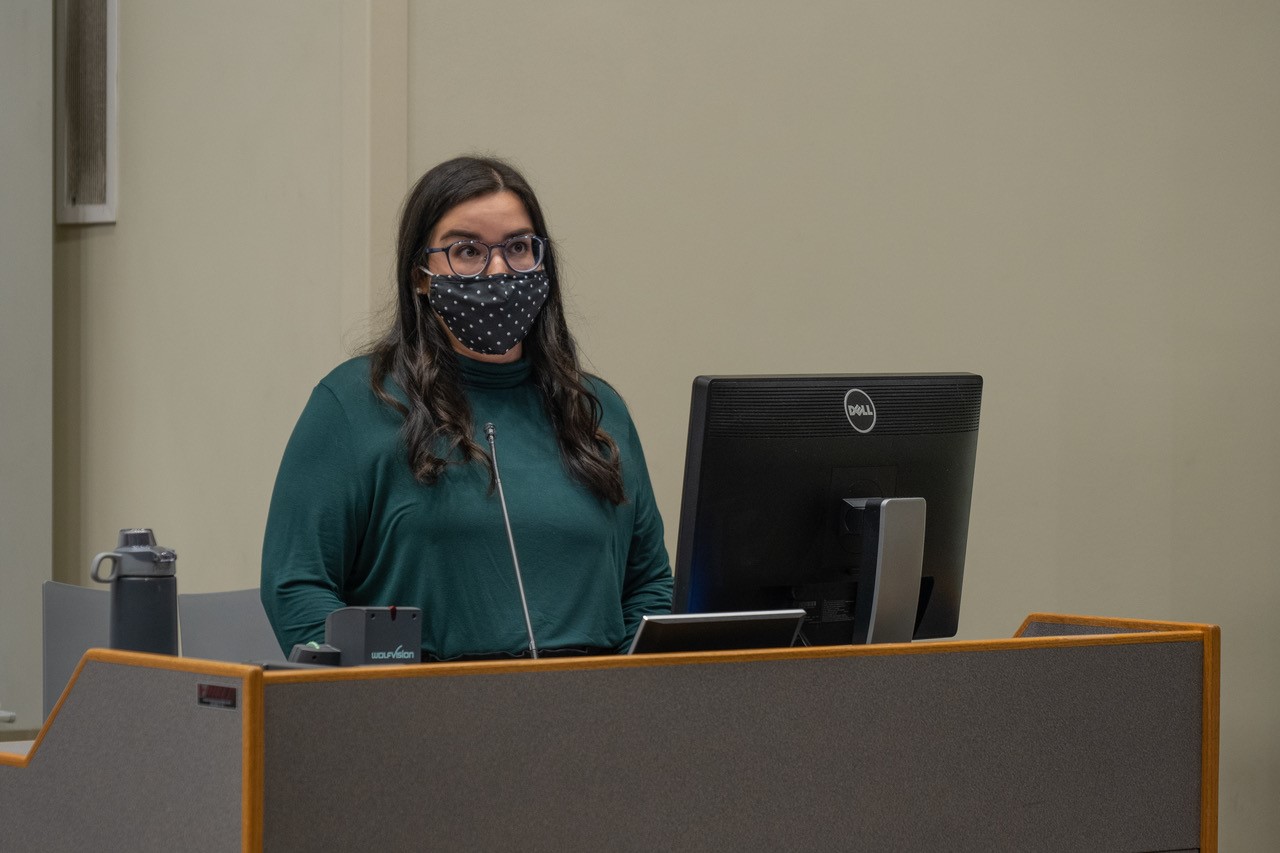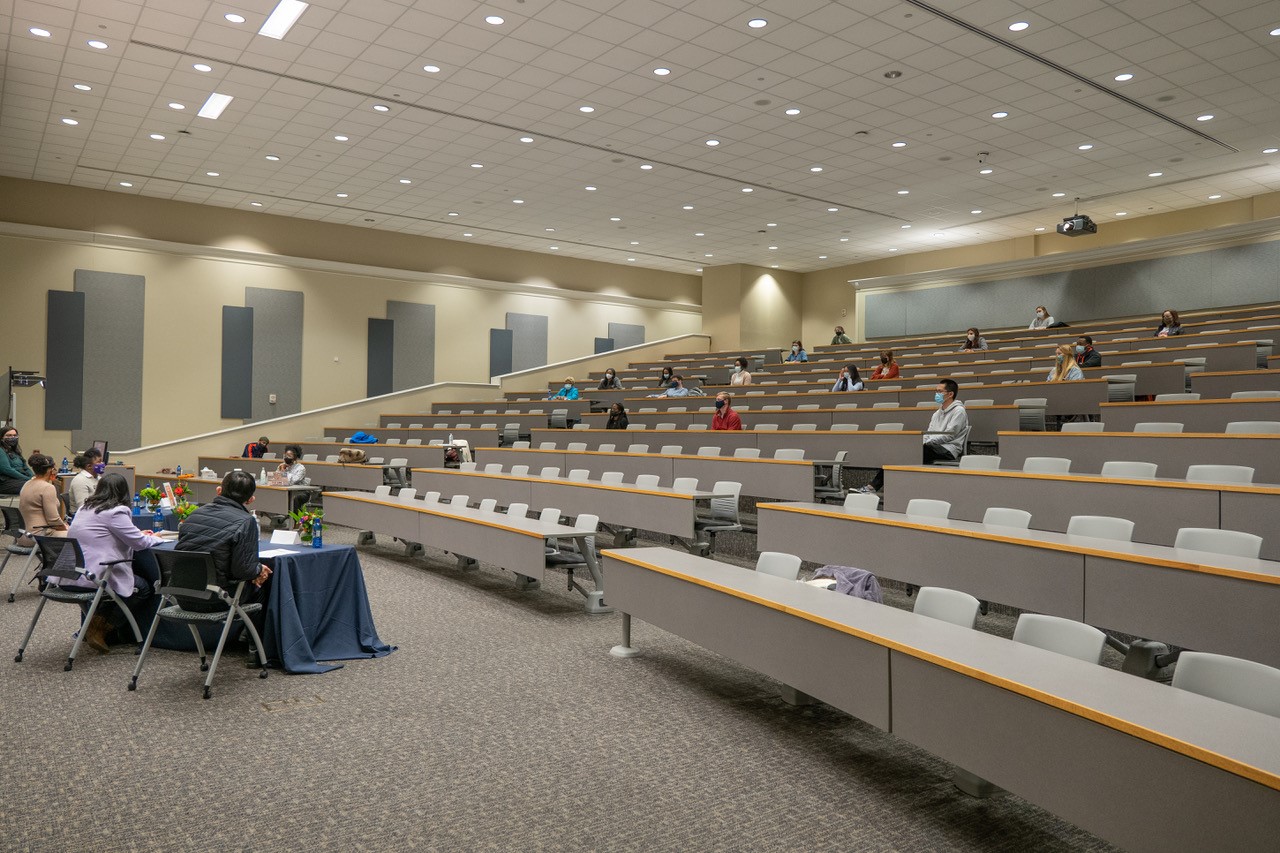Just Medicine event wrap-up
On Thursday, February 4 at 6:00 PM CST, the COSAM Office of Inclusion, Equity and Diversity (OIED) hosted Just Medicine, a blended in-person/virtual panel discussion highlighting and expounding upon the points asserted in Dayna Bowen Matthew’s book of the same title, Just Medicine: A Cure for Racial Inequality in American Healthcare.
This panel discussion is the culmination of the work of 2019 Inclusive Excellence in STEM student award winner, Hayleigh Hallam. During the winter of 2020, Ms. Hallam led a book club in reading and discussing Matthew’s book, and invited a panel of four professionals who work within the realm of healthcare and have a focus in equity to speak: Mary E. Fleming, MD, MPH, an Ob/Gyn and healthcare advocate; Kinika Young, JD, a lawyer and Senior Director of Health Policy and Advocacy at the Tennessee Justice Center; Mayra Rodriguez, PhD, MPH, Assistant Professor and the Director of preventive medicine, epidemiology and public health curriculum at VCOM - Auburn; and C. Edward Chou, PhD, Associate Professor at the Department of Health Outcomes Research and Policy at Auburn’s Harrison School of Pharmacy.
The panel discussion, moderated by Ms. Hallam, focused on healthcare access and outcome disparities based on patients’ ethnic identities, the social determinants of health that perpetuate these health disparities, implicit bias in the clinical encounter, and what we can do to improve these issues. When asked what they thought was the most shocking health disparity in the US, Ms. Young and Dr. Fleming agreed on the infant/mother mortality rate of Black women and their babies in comparison to their White counterparts. “It’s a multi-generation problem that requires a multi-generation solution,” specified Dr. Fleming.
The panelists also agreed when discussing how social determinants of health, i.e. the social and economic environment that affects healthcare access and outcomes, impact health disparities. Dr. Chou and Dr. Rodriguez highlighted specific examples of how geographically near, yet distinct neighborhoods can have an impact on factors from individuals’ blood pressure to their overall life expectancy. Dr. Fleming echoed this sentiment, and Ms. Young drew this phenomenon back to racism, segregation, and redlining. “The problem is the allocation of resources,” Ms. Young said in a post-panel interview. For example, she mentioned, it is no wonder that if a healthcare provider does not accept Medicaid insurance, the lower-income folks who rely on this program to pay for their healthcare needs will be unable to seek treatment.
To end the discussion, the panelists gave a few suggestions on possible solutions. To begin, Ms. Young highlighted the individual level, simply getting to know folks who differ from you. Dr. Chou, also focusing on the individual level, stated that everyone has implicit bias no matter who you are, but the problem emerges when we are ignorant of our biases and do nothing to work on them. Dr. Rodriguez mentioned being intentional about the words we choose to use, and at the macro level, encouraging rigorous social science research. Finally, Dr. Fleming stated that it is important to have these sorts of conversations outside of health-focused spaces, and to give folks the benefit of the doubt.
Latest Headlines
-
02/12/2025
-
02/11/2025
-
02/10/2025
-
01/30/2025
-
12/03/2024



